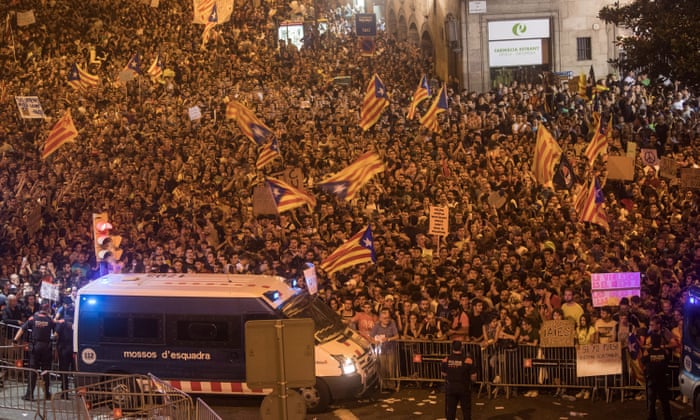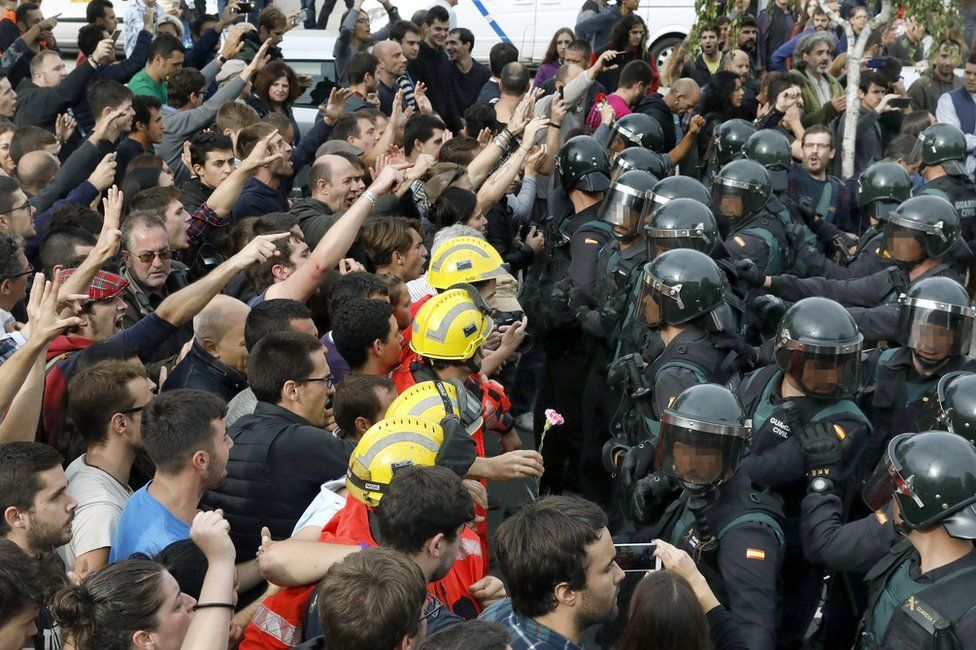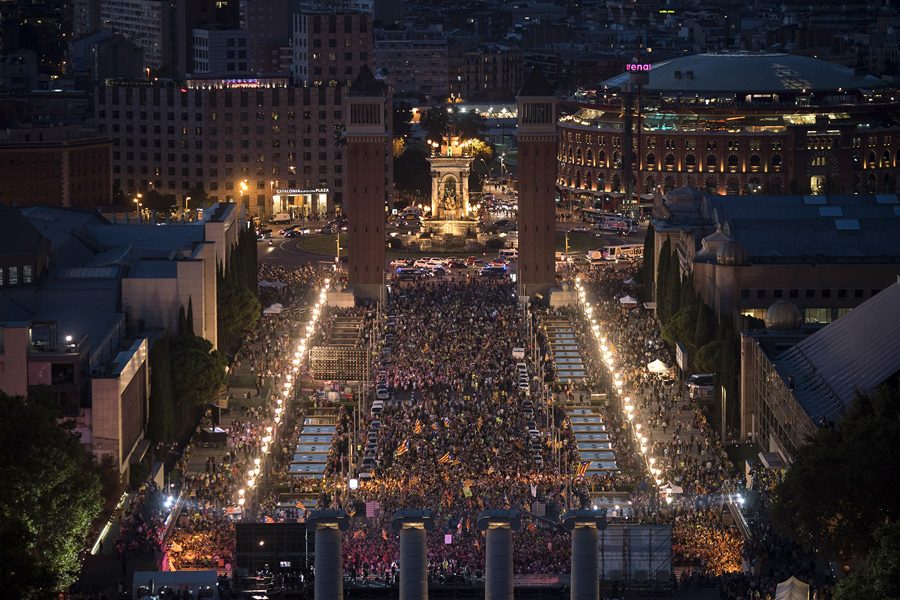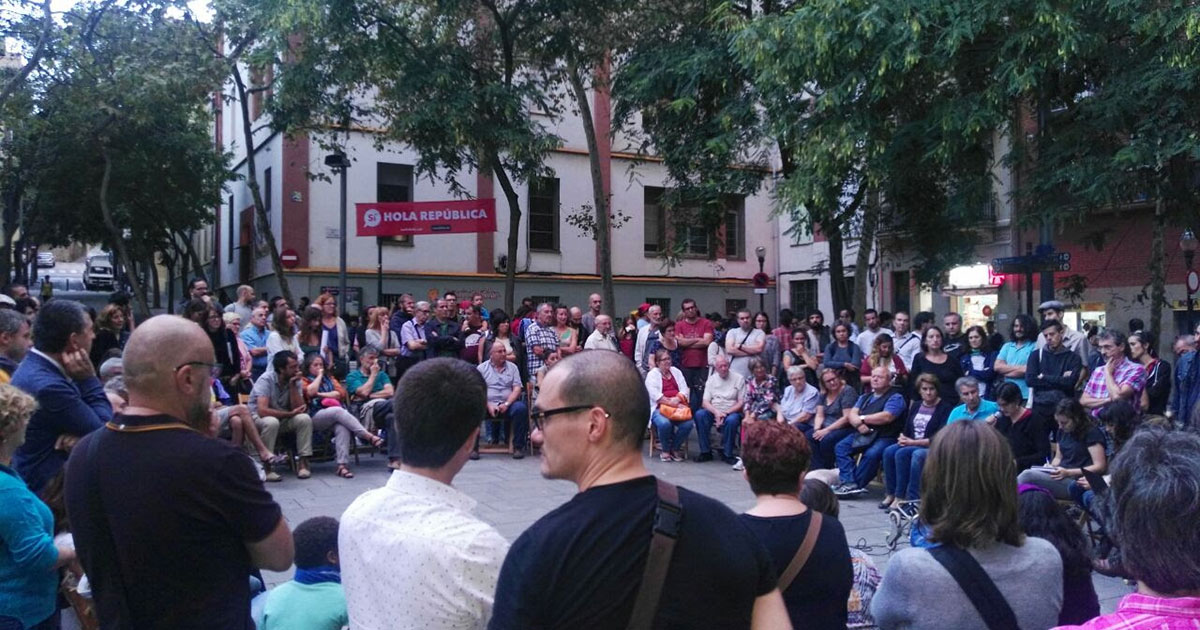Spain: Debate erupts in Podemos around agreement to join PSOE government
quote:
Opposition
Opposition to the content of the deal quickly emerged within and beyond Castilla-La Mancha, with the Anticapitalists current, representing around 10% of the total Podemos membership, prominent but not alone in its criticism. Declaring his support for #TwoQuestions, Podemos’s second MP in the Castilla-La Mancha parliament, Anticapitalists’ sympathiser David Llorente, said that «an agreement to govern with the PSOE as a minority would be a mistake».
On July 21, Isidro López and Raul Camargo, Podemos MPs in the Madrid regional parliament and supporters of Anticapitalists, dramatised what they saw as the stakes in the Castilla-La Mancha vote with this comment on the web-based daily Público:
Over the last week we have seen a profound shift in the political direction of Podemos. Contrary to the majority understanding of what the results of Vistalegre II [Podemos’s February all-Spanish congress] meant, there is a turn towards a dynamic of governmental agreements with the PSOE... Given a correlation of forces favourable to the PSOE, a policy of generalised governmental agreements means ... accepting our conversion into the left wing of the regeneration of the regime.
A well-known supporter of Pablo Iglesias also issued a warning shot. Diego Cañamero, former leader of the Andalusian Workers Union (SAT) and a Podemos MP in the Spanish parliament, wrote in July 18 discussion section of the web-based daily El Diario:
In this complex context, I believe—with prudence, modesty and all the respect in the world towards the comrades who are designing our political strategy—that the PSOE is not our natural ally ... Getting closer to the PSOE while Podemos does not greatly surpass it in popular and parliamentary support, will only serve to rehabilitate, cure and clean up the worst PSOE. And worse still, we could get so seriously contaminated that ordinary people stop seeing us as an alternative.»
In answer to the campaign for the issues of budget support and entry into the government to be put separately, García Molina asked Podemos members over the social networks whether they considered «the Socialist Party or ourselves as more to be trusted in the implementation of our own policies». He added (as quoted in the July 19 Diario de Castilla-La Mancha):
Voting for the budget without being able to enter government would be to go back to the starting line. To go back to giving the PSOE tools that are ours but which we would leave in their hands and which would be subject to their wishes as to whether they are used or not, and without any control mechanisms or guarantees.
quote:
The ballot result
The criticism had little effect on the membership ballot on Podemos’s agreement with García-Page. With just under half the active membership participating, 77.98% voted in favour of the agreement and only 22.02% against. María Díaz, Podemos’s local organisational secretary commented: «It is a historic result, surpassing all previous levels of participation in membership consultations in Castilla-La Mancha.»
She added that «we are in no way going to disappoint the confidence of the overwhelming majority who have understood that this is the moment to show that we know how to fight and we know how to govern.»
Calling on the minority to accept the result of the vote, García Molina said that «we are maturing without getting old» and that «the question is not so much about being in a government with the PSOE, but rather about whether we are capable of sharing the business of government with the PSOE, knowing we are two different parties.»





